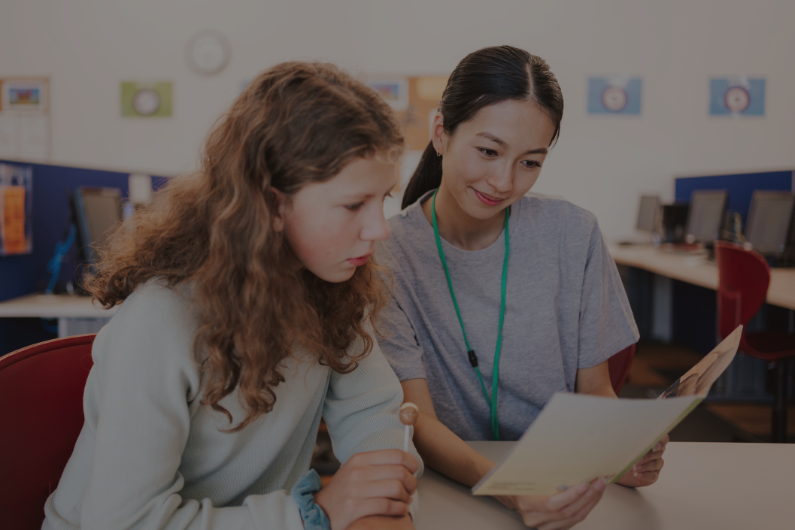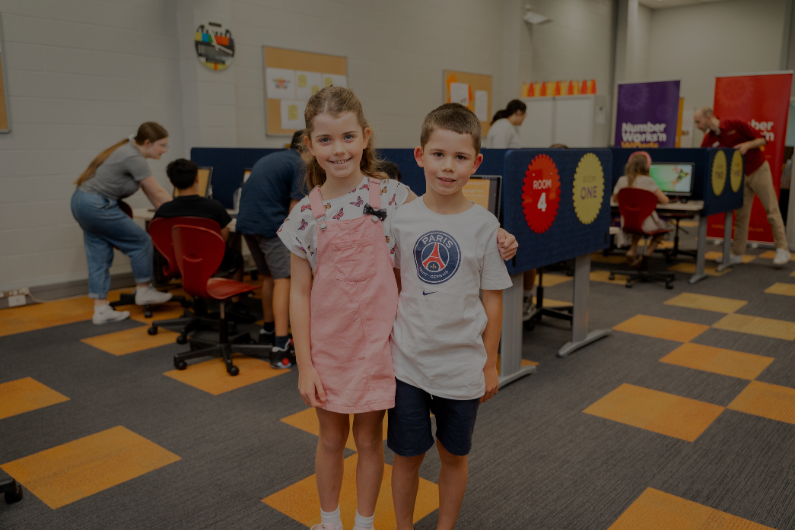Navigating the GCSE Journey: A Comprehensive Guide

Embarking on the General Certificate of Secondary Education (GCSE) journey can be both exciting and challenging. This guide aims to provide insights, tips, and guidance for parents navigating their children through GCSEs.
GCSEs, stand for General Certificate of Secondary Education. GCSEs are a set of exams taken in England, Wales, and Northern Ireland, usually by children aged 14 to 16, at the end of their compulsory high school education. The GCSE exams assess a wide range of subjects, including maths, English, science, humanities, and languages.
GCSEs are an important part of the education system and are used to determine a student's academic achievements. Typically children take GCSEs in preparation for further education, such as A-levels (Advanced Level) or vocational qualifications. The results of a child’s GCSEs can have an influence on their future education and career opportunities.
Overview of Subjects and Curriculum
The number of subjects covered in GCSEs is extensive, encompassing core areas such as English, maths, and science, along with a variety of optional subjects. This diversity allows children to tailor their education based on their interests, passions and future aspirations. The curriculum for each subject is carefully structured, outlining the specific content and skills children are expected to master.
Exam Structure and Assessment Methods
Understanding the exam structure and assessment methods of GCSEs is vital for successful preparation. The primary mode of assessment in GCSEs is through written examinations, typically held at the end of the year. These exams evaluate children’s knowledge, understanding, and application of subject-specific content.
In addition to written exams, practical assessments play a significant role, particularly in subjects like design and technology. These assessments gauge a student's ability to apply theoretical knowledge to real-world scenarios and showcase practical skills developed during the course.
Subjects like modern languages and English may include speaking and listening assessments. These evaluate a student's ability to effectively communicate and demonstrate spoken language skills. Practical performance assessments are common in drama, music, and physical education, involving live or recorded presentations and demonstrations of skills acquired during the course.
The final GCSE grade is usually a weighted combination of performance in written exams, practical assessments, coursework, and other components. The weighting varies between subjects, reflecting the diverse nature of assessments.
Children must adopt varied revision strategies, such as practising past papers for written exams, conducting experiments for practical assessments, and revisiting coursework for continuous assessment components.
Other GCSE Types: Applied GCSEs and Short-Term Courses
In addition to the traditional General Certificate of Secondary Education (GCSE), there are alternative pathways designed to cater to diverse learning styles and career aspirations. Two significant variations are Applied GCSEs and short-term courses, each offering unique benefits for children.
Applied GCSEs:
Applied GCSEs prioritise practical, hands-on learning, making them suitable for children who prefer a more vocational approach. These courses, covering subjects like health and social care, business, engineering, and information technology, integrate coursework, practical assessments, and real-world projects into the curriculum.
The applied nature of these courses aligns well with vocational career paths, providing children with skills directly applicable to their specific industries upon completion.
Short-Term Courses:
Short-term courses provide an intensive, focused study on specific subjects or skills, offering flexibility in duration ranging from several weeks to a few months. While not traditional GCSEs, these courses can enhance knowledge or develop particular skills quickly.
Covering a wide range of topics, from language courses to professional development workshops, short-term courses allow children to explore niche areas of interest and contribute to a well-rounded academic portfolio. They can be particularly beneficial for individuals seeking to upskill.
Considerations for Students:
The choice between traditional GCSEs applied GCSEs, or short-term courses depends on individual learning preferences and career goals. Some children thrive in traditional academic settings, while others may find applied or short-term courses more engaging and relevant.
When selecting courses, children should consider their long-term career aspirations, as traditional GCSEs may be more suitable for those aiming for academic paths, while applied GCSEs and short-term courses can provide a direct link to specific industries or skill sets.
How are GCSEs Marked?
GCSEs were traditionally scored from A* to G (with an additional U grade for papers deemed ‘ungraded’). This is still the case in Wales and Northern Ireland.
In England, however, recent government reforms have replaced that method with a 9-1 grading scheme;
- 9 corresponds to a high A*
- 8 corresponds to an A*
- 7 corresponds to an A
- 6 corresponds to B
- 5 corresponds to a strong pass (C*)
- 4 corresponds to a standard pass (C)
Under the numerical system, a minimum of a 4 is required to pass, while grades 1-3 are considered a fail. U continues to exist for unmarkable papers.
Each year, the awarding bodies decide on a ‘Common Timetable’ to co-ordinate the scheduling of examinations. The timetable usually runs from late May to late June.
Understanding GCSE Reports
In addition to grades, GCSE reports often include a comparison to national averages. This contextual information assists in understanding a child’s overall standing in comparison to their peers. Progress over time is another crucial factor covered in some reports, shedding light on positive advancements or areas requiring attention.
Examined components, including coursework, practical assessments, and written exams, are often broken down in the report. This breakdown provides valuable insights into which areas your child thrives in and which areas need more targeted support.
Target grades and predictions made earlier in the academic year are also included in reports, allowing for a comparison with actual results to gauge achievement and improvements.
If your child’s exams don't go well
If your child’s GCSE is made up of modules, they can choose to resit individual modules. Only one re-sit is permitted per unit. The highest mark will be taken from your different attempts.
Otherwise, if you think something may have gone wrong with marking your child’s exam, your school or FE college can ask for a re-mark or recount. There is also an Appeals process which is administered by the awarding organisation, and if necessary, the independent Examinations Appeals Board.
What if my child is underperforming?
Don’t panic. Instead, acknowledge your child's efforts and strengths, and offer them support and encouragement. Let them know that you're proud of them regardless of their score and that you're here to help them improve their skills and reach their goals.
The next step is to understand your child's strengths and weaknesses in the different areas of their GCSEs. You can do this by reviewing their test results, talking to their teachers about their performance, or booking a free assessment with the NumberWorks’nWords team. This assessment can help you identify which areas your child needs to focus on, and which areas they are excelling in.
Practical Advice for Success
A challenge during the GCSE period is managing exam-related stress. Implementing effective time management, creating realistic study schedules, and incorporating regular breaks are pivotal to avoiding burnout. Additionally, techniques such as mindfulness, deep breathing exercises, or engaging in activities like yoga and meditation can alleviate stress and build resilience.
Recognising that success involves more than relentless studying, striking a balance between academic commitments and personal life is crucial. Achieving this equilibrium requires setting realistic study goals, maintaining a consistent routine, and allocating time for hobbies and relaxation.
Acknowledging the importance of seeking support forms a cornerstone of successful navigation through the GCSE journey. Building a robust support system involving teachers, peers, and family is instrumental. Our team at NumberWorks’nWords provide academic guidance, clarification on challenging topics, and constructive feedback to help your child succeed and build confidence.
Why our GCSE tutoring programmes are more effective than practice alone
If your child needs help with questions, concepts or simply practising numerous questions, NumberWorks’nWords personalised assistance can help. We address their questions and clarify concepts at their own pace.
At NumberWorks’nWords, our experienced team has crafted programmes tailored to offer children the necessary support for GCSEs. Our programmes aim to enhance your child's numeracy and literacy skills by reinforcing their foundational knowledge, and prioritising understanding over mere memorisation.
If a student encounters challenges with a particular topic, our tutors can refine their programme to ensure thorough comprehension is achieved.



